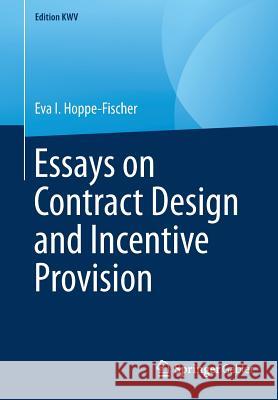Essays on Contract Design and Incentive Provision » książka
topmenu
Essays on Contract Design and Incentive Provision
ISBN-13: 9783658241322 / Angielski / Miękka / 2019 / 211 str.
Kategorie:
Kategorie BISAC:
Wydawca:
Springer Gabler
Seria wydawnicza:
Język:
Angielski
ISBN-13:
9783658241322
Rok wydania:
2019
Wydanie:
2011, Reprint 2
Ilość stron:
211
Waga:
0.36 kg
Wymiary:
24.41 x 16.99 x 1.19
Oprawa:
Miękka
Wolumenów:
01
Dodatkowe informacje:
Wydanie ilustrowane











